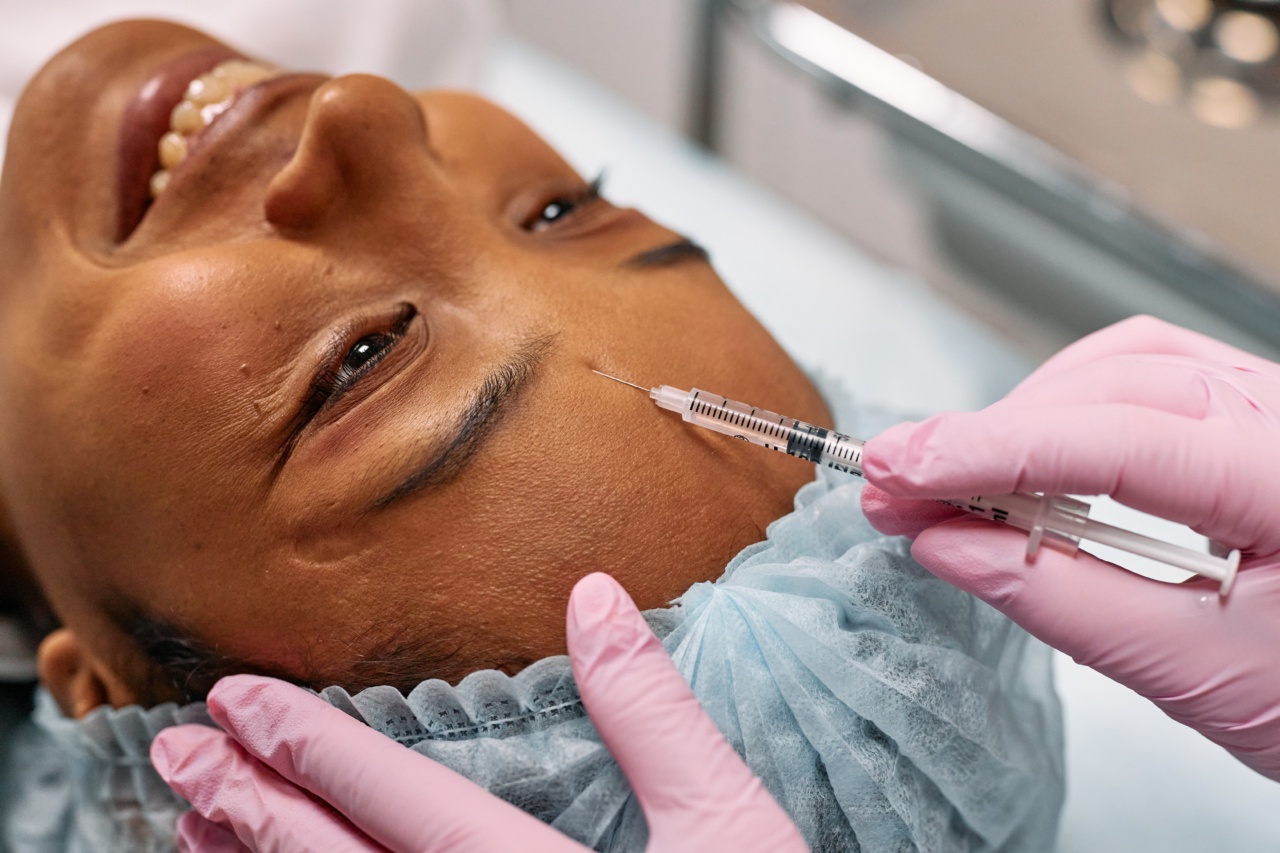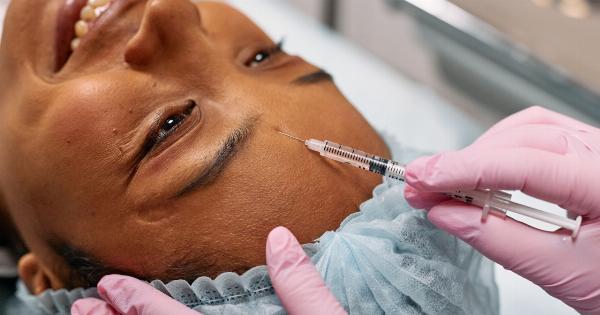Botox, or botulinum toxin, is a popular cosmetic treatment used to temporarily reduce the appearance of wrinkles and fine lines. It works by blocking nerve signals in the muscles, causing them to relax and smoothing out the overlying skin.
While Botox is generally considered safe and effective, there are certain situations where its use may not be recommended. It is important to be aware of these contraindications to ensure a safe and satisfactory outcome. In this article, we will discuss ten situations where Botox is not recommended and explore alternative options to consider.
1. Pregnancy and Breastfeeding
If you are pregnant or breastfeeding, it is generally advisable to avoid Botox treatments. Although no definitive studies have been conducted on the effects of Botox in these situations, it is essential to err on the side of caution.
Botox injections carry a small risk of spreading beyond the targeted area, which could potentially affect the developing fetus or newborn. Additionally, the long-term effects of Botox during pregnancy and breastfeeding are unknown.
2. Allergic Reactions
Individuals who are allergic to any of the ingredients in Botox, such as botulinum toxin or albumin, should not receive these injections. Allergic reactions can range from mild irritation to severe anaphylaxis, a life-threatening condition.
It is important to discuss any known allergies with your healthcare provider before considering Botox treatment.
3. Neuromuscular Disorders
People with certain neuromuscular disorders, such as myasthenia gravis or Lambert-Eaton syndrome, should avoid Botox.
These conditions affect the functioning of the muscles and nerves, and the use of Botox can potentially worsen the symptoms or lead to other complications. It is crucial to inform your healthcare provider about any existing neuromuscular disorders before considering Botox.
4. Infection at the Injection Site
If you have an infection or a skin condition at the planned injection site, it is generally recommended to postpone the Botox treatment.
Injecting Botox into an infected area can introduce bacteria into the deeper layers of the skin, potentially leading to more severe infections or complications. It is best to wait until the infection or skin condition has completely resolved before proceeding with Botox injections.
5. Bleeding Disorders or Medications
Individuals with bleeding disorders, such as hemophilia or a tendency to form excessive bruises, should exercise caution or avoid Botox altogether. Botox injections can potentially increase the risk of bleeding and bruising at the injection site.
Similarly, certain medications, such as blood thinners, can interfere with the body’s ability to clot, leading to prolonged bleeding or bruising. It is important to inform your healthcare provider about any bleeding disorders or medications before receiving Botox.
6. Previous Adverse Reactions to Botox
If you have previously had a negative or adverse reaction to Botox, it is strongly recommended to avoid further treatments. Adverse reactions may include excessive swelling, persistent redness, pain, or any other abnormal symptoms.
These reactions could indicate an intolerance or hypersensitivity to Botox and should be discussed with your healthcare provider.
7. Muscle or Nerve Conditions
People with existing muscle or nerve conditions, such as ALS (amyotrophic lateral sclerosis) or multiple sclerosis (MS), may not be suitable candidates for Botox treatments.
These conditions can affect muscle functioning and the body’s response to Botox injections. It is crucial to consult with a healthcare professional who is knowledgeable about your specific condition before considering Botox.
8. Recent Facial Surgery or Injury
If you have recently had facial surgery or experienced an injury in the planned treatment area, it is generally advisable to wait until the area has fully healed before pursuing Botox injections.
Healing tissues require time to recover, and introducing Botox too early could potentially interfere with the healing process or lead to undesirable outcomes. It is best to consult with your healthcare provider about the appropriate timing for Botox after surgery or injury.
9. Unrealistic Expectations
Botox can effectively reduce the appearance of wrinkles and fine lines but is not a magical solution for every aging concern.
If you have unrealistic expectations about the results you can achieve with Botox or have exaggerated notions of how it can improve your appearance, it may not be the right treatment for you. It is important to have a realistic understanding of what Botox can and cannot do and discuss your goals with a qualified healthcare professional.
10. Minors
In most cases, Botox treatments are not recommended for individuals under the age of 18. Facial development is not yet complete during adolescence, and there is limited research on the effects of Botox on young individuals.
Additionally, minors may not fully understand the risks and benefits of Botox treatments and may not be able to make informed decisions. It is crucial to consult with a healthcare professional who specializes in pediatric dermatology or cosmetic treatments for minors.
While Botox is a commonly used cosmetic treatment, it is essential to be aware of the situations where it may not be recommended in order to make an informed decision.
Avoid Botox if you are pregnant or breastfeeding, have allergies to the components, or have neuromuscular disorders. If you have infections, bleeding disorders, or previous adverse reactions to Botox, it is advisable to postpone or avoid treatment.
Additionally, individuals with certain muscle or nerve conditions, recent facial surgery or injury, unrealistic expectations, or who are minors should also exercise caution with Botox. Remember, always consult with a qualified healthcare professional to discuss your specific situation and explore alternative options that may be more suitable for you.






























